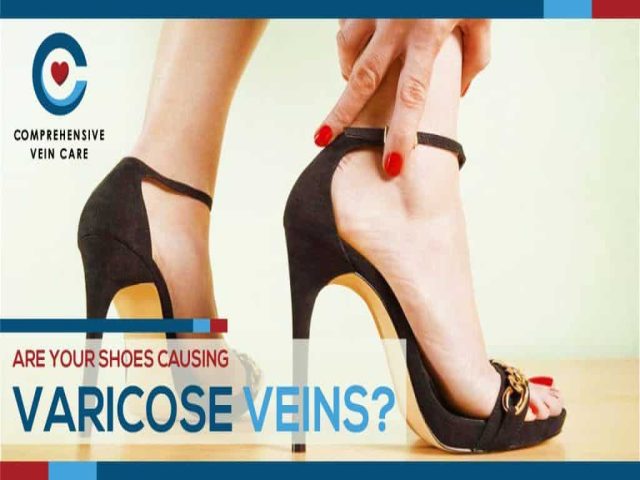Recent Blogs
- How VenaSeal Treatment Works to Treat Varicose Veins
- Understanding the Difference in Treatment of Varicose and Spider Veins
- Free Legs Vein Screening
- Causes and Treatment of Bulging Veins
- Early Symptoms of Varicose Veins You Should Never Ignore
- Can vein disease be prevented?
- 7 Effective Home Remedies for Managing Varicose Veins
- Is the Closurefast RFA Procedure A Safe Option For Treating Varicose Veins?
- The Benefits of Minimally Invasive Vein Treatments: What You Need to Know
- 6 Risk Factors for Chronic Venous Insufficiency
Published on: 25-Nov-2019

Crossing your legs does not cause varicose veins, but too much pressure put on your legs can become a cause. People who are in professions where they are required to stand/sit for a long period of time are more susceptible to venous insufficiency.
However, wearing the right choice of footwear can help prevent and progression of varicose veins. Your venous health can be impacted by the type of shoes you wear. Your footwear can affect the blood flow from your feet to the heart, resulting in varicose and spider veins.
When considering shoes not to wear, high heels come first in line. Avoid wearing heels that are more than 2 inches high. Heels restrict muscle function as well as affect the pumping of blood back to the legs from the calves. This inability increases vein pressure in the lower legs and causes pain in the lower extremities.
Why low-heeled shoes are better for you?
Low-heeled shoes are known to improve better blood flow from the lower legs by toning the calf muscles. When blood pumps up the legs to the heart more efficiently, venous disease and the formation of varicose veins can often be avoided.
Low-heeled shoes with plenty of support from the inside are the best type of shoes for varicose veins. Orthotic insoles can also provide a comforting fit and support to your regular-wear shoes that might lack support.
While some doctors believe that wearing specialized shoes for toning and strengthening calf muscles would be beneficial, some believe that wearing a heel of 1-1.5 inches would give a similar effect.
If you’re suffering from painful veins or if you want to take precautions for varicose veins, the right pair of shoes can help you. Although shoes will not be able to cure varicose veins, they can relieve your pain and swelling.
If you have any concerns about the symptoms or to find the best treatment for varicose and spider veins, contact us or schedule a Free Consultation.